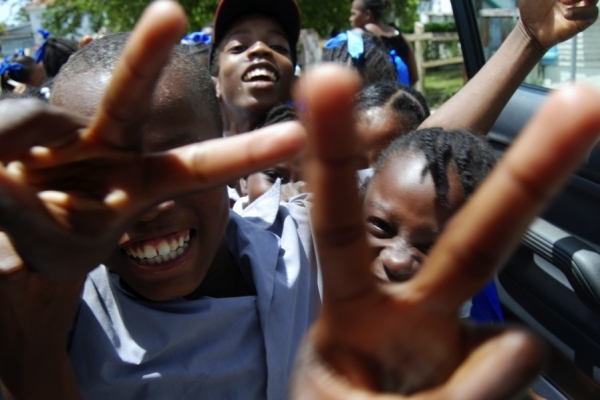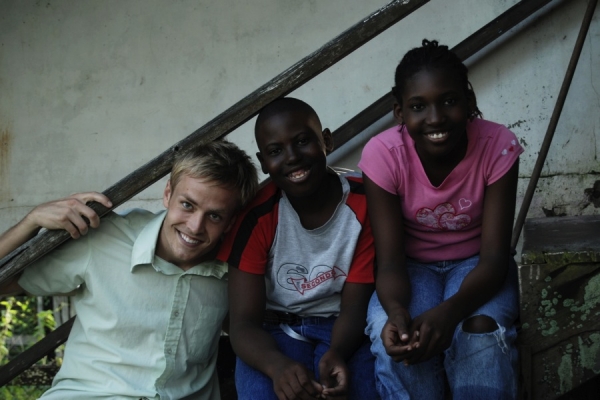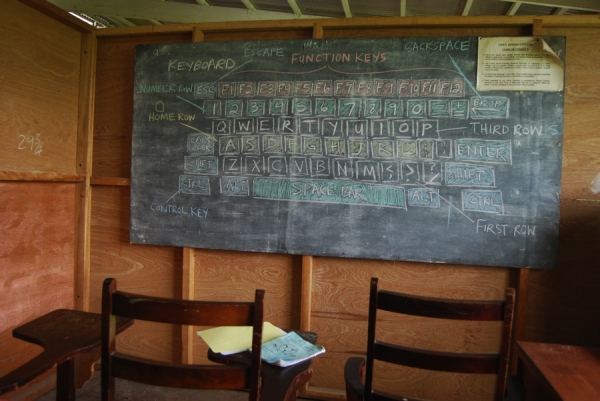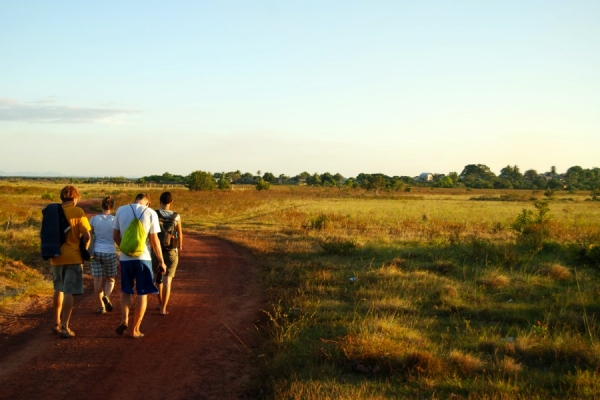Nu pierdeți cele mai bune locuri de muncă!
Abonează-te și săptămânal iți vom trimite un email cu ultimele locuri de muncă disponibile. Introdu adresa ta de email mai jos
Part of the adventure of volunteering abroad, especially with the United States Peace Corps, is accepting it comes with certain risks and lack of conveniences that will change how you live your life forever. What I learned as a Peace Corps Volunteer (PCV) has shaped how I have approached everything since.
I served as an Education/Information and Communication Technology (ED/ICT) volunteer in Guyana, South America (2008-2010), with only basic necessities to get by. Power outages happened regularly. I usually bathed out of a bucket. And I did not have air-conditioning in my apartment. It was the best two years of my life.
1. Everyone has something to offer.
It does not matter if you are a recent college graduate or new retiree. Everyone has something to offer communities in need. Fresh, new ideas and energy go a long way, even if you do not feel experienced enough. Newly retired persons have decades of working knowledge to contribute.
2. You will never be more ready than you are right now.
I have never felt fully prepared, qualified, or ready to do any job I have done. Perhaps the biggest hurdle to get over is this irrational fear of being inadequate. Simply show up with a willing and positive attitude. Learn as you go. You will never be more ready than you are right now.
3. You are not going to change the world.
You are not going to change the world by showing up at some random village no one has ever heard about before. However, having an influence in the lives of those you encounter could make a huge impact on the future. Do not overlook opportunities to make a small difference in someone else’s life. Just one person, one individual matters. A smile is all it takes.
4. Celebrate the small triumphs.
Anyone who has lived abroad understands the importance of celebrating every achievement. No matter how big or small. Immersing yourself into a new culture takes one little step after another. Celebrate the small triumphs. When you learn a new word, rejoice. When you navigate how to take public transportation, be proud! When you locate where to find drinkable water, take a well-deserved chug.
5. The most important aspect of living in another culture is integration.
It does not matter if you are new to a country, a city, or a workplace. Understanding key elements of fitting in will help make the most of your time in an unfamiliar setting.
The most important aspect of living in another culture is integration. It takes a lot of time and effort to develop relationships, gain trust, and figure out how to live in a country different from your own.
Cultural integration is not only learning the local language, customs and norms. It is about becoming a part of the community in which you live and work.
6. Collaboration is necessary for sustainability.
Peace Corps training teaches about the necessity of cooperation, how to gain respect through equal exchange. It is impossible to do anything without developing partnerships with local counterparts. Sharing ownership of a project leads to victory. Collaboration is necessary for sustainability.
7. Everyone’s experience is different.
Everyone’s experience is different. Do not compare. Even in the same country, PCVs have totally different experiences due to separate assignments and living situations. The same is true for life.
Comparing Peace Corps experiences is like comparing a janitor and a doctor. Both are necessary positions in a hospital, but the outcome of responsibility is quite contrasting. However, you cannot have a clean, fully functioning hospital without a janitor.
Your presence in the advancement of a country is more important than how seemingly significant your job is.
8. Be resourceful.
You might be asked to teach students how to use a computer without actually having a computer to use. Be resourceful. Draw a keyboard on a chalkboard. Use discarded parts of a system to demonstrate how a computer works. Developing an ability to come up with lessons on the spot, or teach with a lack of resources, is foundational for Peace Corps service.
9. The act of volunteering is two-fold.
The act of volunteering is two-fold. I have had many opportunities to volunteer, and one thing has been true about all of them. I went to serve, but felt given much more in return. This used to bother me, but I had to let go and realize part of serving, part of volunteering, is also allowing oneself to be served.
10. The impact of Peace Corps service reaches beyond borders.
Peace Corps service continues long after a PCV leaves his or her country of service. One of Peace Corps’ three main goals is to "strengthen understanding about the world..."
By continuing to share about my Peace Corps experience and host country’s culture, I am actively supporting this commitment. The impact of Peace Corps service reaches beyond borders.
In addition, as a traveler, you are a cultural ambassador for your country. What you do will be noticed. Your actions stand out. You have the power to positively or negatively affect stereotypes about your country, and foreigners in general.
Life is calling… Answer that call.
There is no need to feel like you have to follow any sort of path others before you have paved. There is no need to get a job you think you need just because it would provide a steady income.
Would you rather sit at a desk and stare at a computer all day, or would you rather make a real, positive, personal, and sustainable impact in the lives of others?
All eligible U.S. citizens should consider volunteering with the Peace Corps. The experience will change your life. If you are not from the United States, you can apply to serve through similar organizations such as Voluntary Services Overseas (VSO). I imagine the same important skills can be gained from most long-term volunteer experiences abroad.
The contents of this article are the author’s opinions, and do not necessarily reflect any position of the U.S. government or the U.S. Peace Corps.
Sign in to publish a comment




Be the first to comment on this post.